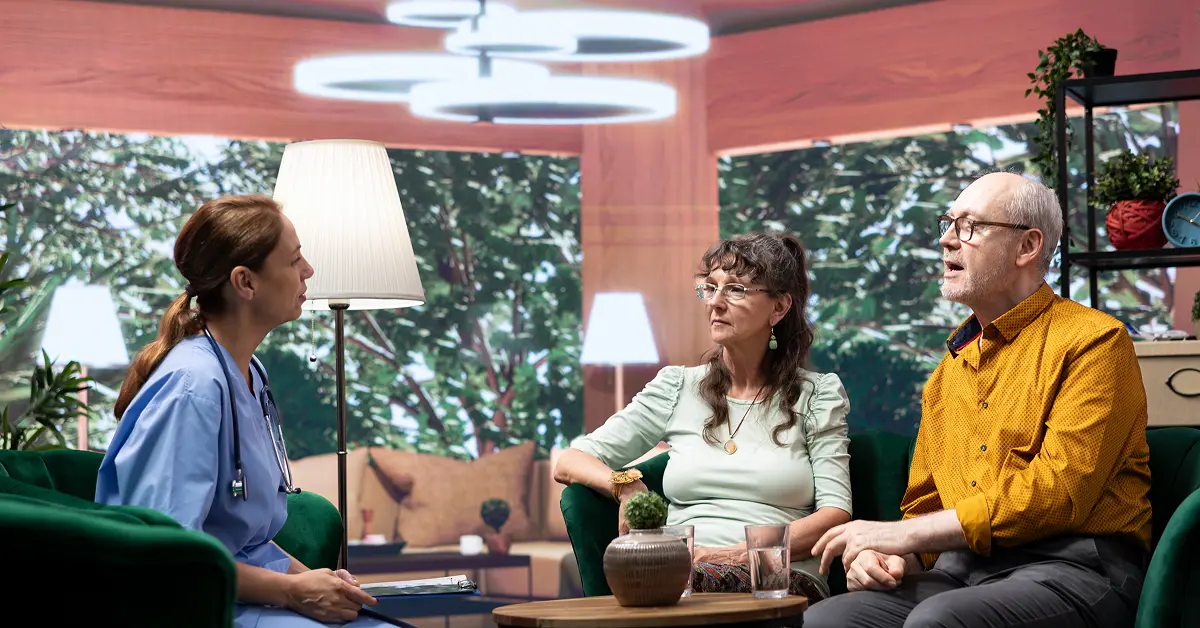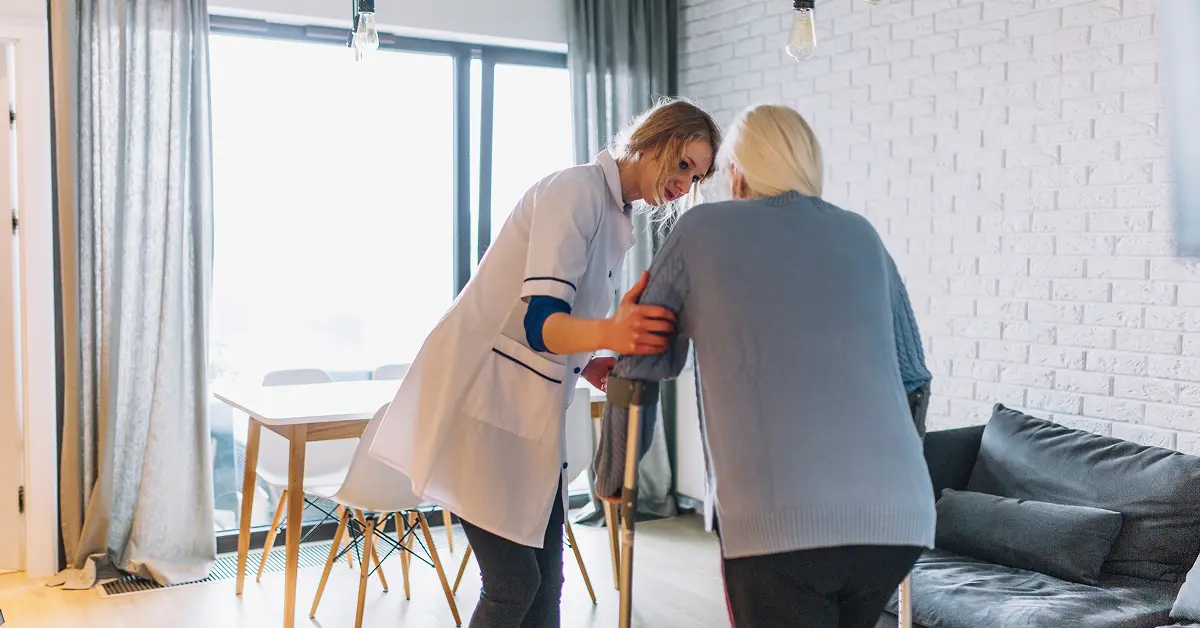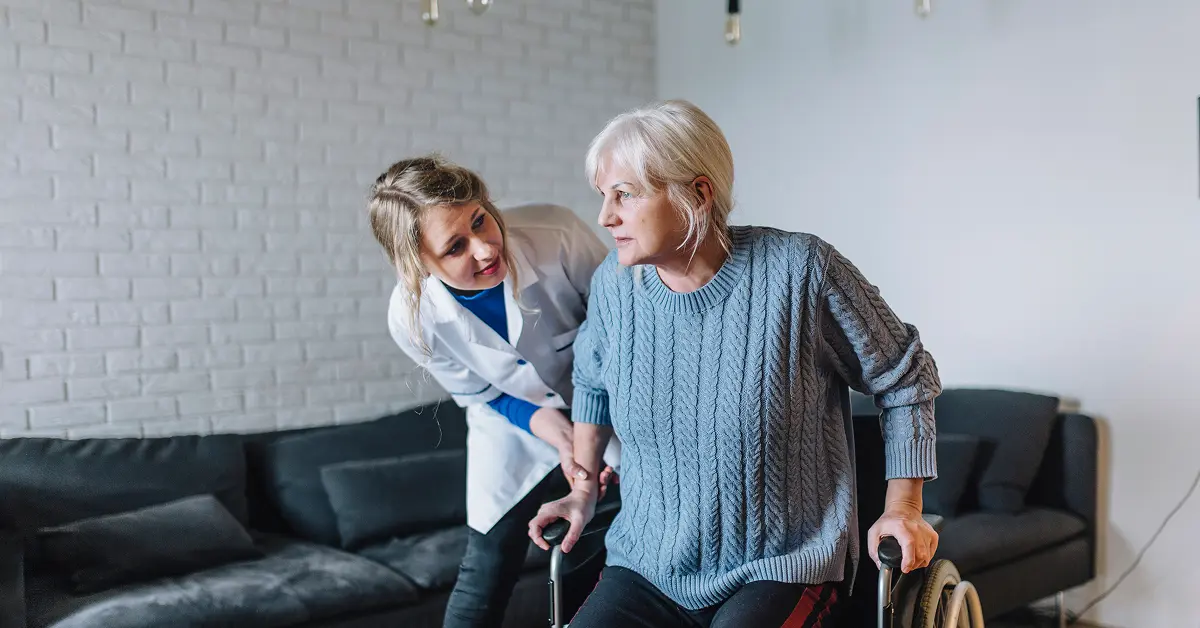Hospital Discharge is a critical transition point in any patient’s healthcare journey. In India, where joint family systems are common and caregiving is often a shared responsibility, effective coordination between professional caregivers and family members becomes essential. Poorly managed discharge plans can lead to complications, emotional stress, and even hospital readmissions. This is why seamless collaboration between families and caregivers must be prioritised during discharge planning.
In this blog, we explore the importance of coordinated discharge planning, its benefits, common challenges, and practical steps families and caregivers can take to work effectively together.
Understanding Discharge Planning
Discharge planning is the process of preparing a patient to leave a hospital and continue treatment, recovery, or palliative care at home or another facility. This involves understanding medical needs, medication, diet, mobility aids, wound care, physiotherapy, follow-ups, and more.
In many Indian households, families try to manage this on their own. However, involving trained caregivers can improve safety, comfort, and recovery speed — especially when there's good coordination.
Why Coordination Is Necessary
Smooth Transition from Hospital to Home
When a patient is discharged, they often feel vulnerable and disoriented. Family members may not fully understand the post-hospitalisation care required. Professional caregivers bring in expertise, while families offer emotional support. Coordinating both ensures no gaps in care.
Better Communication and Role Clarity
In Indian homes, relatives often divide responsibilities informally. Post-discharge care needs clear communication to avoid confusion and duplication of efforts.
Medication and Treatment Adherence
Caregivers can administer medicines and track side effects. Families should share details of allergies, preferences, or traditional remedies to ensure safety and consistency.
Emergency Preparedness
Caregivers may spot early warning signs, but families need to know emergency protocols. Coordination prepares everyone to act fast if needed.
Emotional and Mental Well-being
Patients need both physical care and emotional support. When families and caregivers work together, it enhances the healing experience.
Benefits of Collaborative Discharge Planning
- Reduced Risk of Hospital Readmission: Coordinated efforts help avoid infections, skipped medication, or improper monitoring.
- Customised Care Plans: Families and caregivers can adjust care routines to fit the household setup and patient lifestyle.
- Financial Optimisation: Joint planning helps avoid unnecessary expenses and hospital visits.
- Empowered Family Members: Families feel more confident and in control when they understand the recovery process.
Common Challenges in Coordination
- Miscommunication: Missing out on medical instructions leads to poor follow-through.
- Cultural or Emotional Differences: Home remedies or beliefs may conflict with professional advice.
- Lack of Planning: Hiring caregivers after discharge can cause delays and confusion.
How to Improve Coordination Between Family and Caregivers
Start Early
Begin planning a few days before discharge to prepare caregivers, equipment, and the home environment.
Conduct a Joint Meeting
Include medical staff, a family member, and the caregiver to ensure everyone understands the care requirements.
Create a Clear Care Plan
Document medication schedules, diet, wound care instructions, daily tasks, and emergency contacts.
Define Roles and Timings
Assign tasks and plan caregiver shifts and family responsibilities clearly.
Keep Communication Channels Open
Use WhatsApp or health tracking apps to stay updated and communicate changes instantly.
Educate and Train
Families can learn from caregivers and be better prepared to manage basic care routines.
Real-Life Example
Mrs. Sunita Joshi, a 72-year-old from Pune, underwent hip replacement surgery. Her son hired a professional caregiver post-discharge, while the family offered emotional support. Within six weeks, she recovered well thanks to perfect coordination between family and caregiver.
Final Thoughts
Discharge planning is not a one-time formality — it is the beginning of a new phase in recovery. In India’s unique family system, when professional caregivers and families collaborate, the quality of care improves exponentially. It’s about blending professional knowledge with personal warmth to create a healing environment at home.
If your loved one is about to be discharged, don’t wait till the last minute. Involve caregivers in the planning process, communicate clearly, and make sure everyone is on the same page. Recovery is not a solo journey — it's a team effort.
Need help with trained caregivers for home recovery?
Contact a trusted home care provider today and make discharge planning stress-free for your loved ones.
Contents
Our 24*7 services
Latest Posts
- What Is Respite Care and Why Is It Important
- Affordable home care for senior citizens in India
- Caring for Seniors with Dementia or Alzheimer's at Home
- Senior Caregiving A Guide for Every Family
- How to Write a Caregiver Resume That Gets You Hired
- How Care After Hospital Discharge Speeds Up Recovery at Home
- How to Get Home Health Care for Seniors Through Medicare
- What Does a Senior Citizen Caregiver Really Do at Home
- How to Care for Elderly Parents with Alzheimer’s or Dementia
- How to Get 24-Hour Care for Seniors at Home



